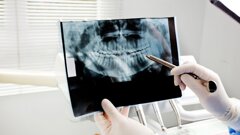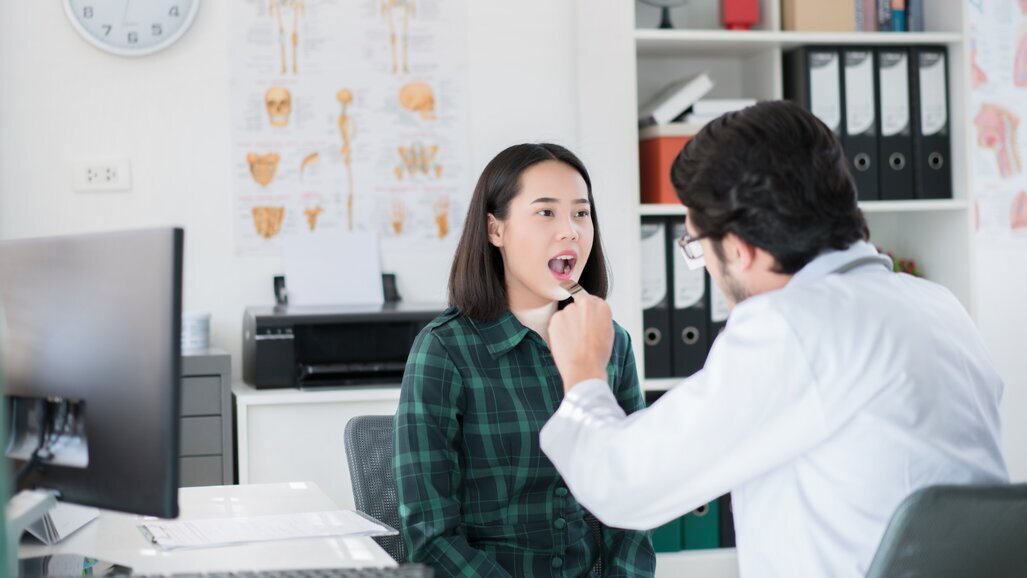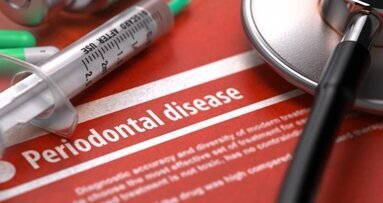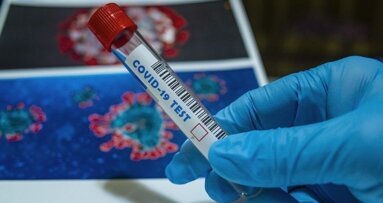BIRMINGHAM, UK: The link between periodontal disease and a range of systemic health conditions such as cardiovascular disease, Type 2 diabetes and rheumatoid arthritis is well established at this point. Researchers from the University of Birmingham are in the process of developing a rapid test for identifying the presence of periodontal disease in the hope of benefiting the overall health of patients with these comorbidities.
The device is being developed by Prof. Tim Albrecht from the university’s School of Chemistry, together with Dr Melissa Grant from the university’s School of Dentistry. It consists of a specialised probe and detector that provides a measurement of certain protein-based biomarkers that indicate both the presence and progression of periodontal disease. This biomarker panel was discovered and validated in a study published in the Journal of Clinical Periodontology by a team of researchers led by Dr Grant earlier this year.
“We believe the device we are prototyping will be the first dental probe that can identify periodontal disease in this way,” Prof. Albrecht said in a press release. “It will detect periodontitis quickly and easily in a variety of healthcare settings, opening up opportunities for monitoring and early intervention in the patients with comorbid disease, who would benefit most from rapid treatment for periodontitis.”
“The ability to detect and profile disease biomarkers in real time will allow monitoring for disease severity, and in particular the transition between milder and more severe forms of gum disease,” added Dr Grant. “This will benefit not only dental health, but also reduce costs and capture patients for whom periodontal treatment may, in the long run, be life-saving.”
The researchers recently received funding from UK Research and Innovation’s Engineering and Physical Sciences Research Council impact acceleration account, and they plan to develop a prototype of this device within a year. In the long term, they hope to develop a probe small enough to be inserted into interdental spaces that will allow dental and other healthcare professionals to collect saliva and gingival crevicular fluid and measure the periodontal disease’s progression.
“If we are able to reach our milestones, I expect that we will see significant progress over the next two to three years,” Prof. Albrecht told Dental Tribune International.
Tags:
EDMONTON, Canada: A team of researchers at the University of Alberta has secured funding to develop a 3D ultrasound device that would allow dentists to ...
An experimental drug that mimics an insulin-regulating hormone could rebuild bone, and perhaps advance treatment for Type 2 diabetics.
BRUSSELS, Belgium: The European Federation of Periodontology (EFP) recently commissioned the Economist Intelligence Unit (EIU), a provider of forecasting ...
AMSTERDAM, Netherlands: In recent years, increasing attention has been given to aspects of oral health in patients with rheumatoid arthritis (RA), ...
BRUSSELS, Belgium/BIRMINGHAM, UK: Treat your gums” is the slogan for Gum Health Day 2022, a worldwide awareness campaign organised by the European ...
After almost 19 years, the latest classification of periodontal diseases was presented on 22 June 2018 at the EuroPerio9 in Amsterdam.The presentation is ...
Rapid Antigen Tests are an easy and economical option for dentists to use in their clinics to identify the potential Covid-19 spreaders visiting their ...
Live webinar
Mon. 16 February 2026
10:30 pm IST (New Delhi)
Live webinar
Tue. 17 February 2026
10:30 pm IST (New Delhi)
Live webinar
Wed. 18 February 2026
7:30 pm IST (New Delhi)
Dr. Anna Lella, Ms. Francesca Nava
Live webinar
Wed. 18 February 2026
10:30 pm IST (New Delhi)
Prof. Dr. João Caramês CODE expert, Dr. Robert Gottlander DDS
Live webinar
Mon. 23 February 2026
1:30 pm IST (New Delhi)
Ass. Prof. Elizabeth Shick, Dr. Zehra Yonel
Live webinar
Tue. 24 February 2026
11:30 pm IST (New Delhi)
Prof. Dr. Markus B. Hürzeler
Live webinar
Wed. 25 February 2026
1:30 am IST (New Delhi)
Prof. Dr. Marcel A. Wainwright DDS, PhD



 Austria / Österreich
Austria / Österreich
 Bosnia and Herzegovina / Босна и Херцеговина
Bosnia and Herzegovina / Босна и Херцеговина
 Bulgaria / България
Bulgaria / България
 Croatia / Hrvatska
Croatia / Hrvatska
 Czech Republic & Slovakia / Česká republika & Slovensko
Czech Republic & Slovakia / Česká republika & Slovensko
 France / France
France / France
 Germany / Deutschland
Germany / Deutschland
 Greece / ΕΛΛΑΔΑ
Greece / ΕΛΛΑΔΑ
 Hungary / Hungary
Hungary / Hungary
 Italy / Italia
Italy / Italia
 Netherlands / Nederland
Netherlands / Nederland
 Nordic / Nordic
Nordic / Nordic
 Poland / Polska
Poland / Polska
 Portugal / Portugal
Portugal / Portugal
 Romania & Moldova / România & Moldova
Romania & Moldova / România & Moldova
 Slovenia / Slovenija
Slovenia / Slovenija
 Serbia & Montenegro / Србија и Црна Гора
Serbia & Montenegro / Србија и Црна Гора
 Spain / España
Spain / España
 Switzerland / Schweiz
Switzerland / Schweiz
 Turkey / Türkiye
Turkey / Türkiye
 UK & Ireland / UK & Ireland
UK & Ireland / UK & Ireland
 International / International
International / International
 Brazil / Brasil
Brazil / Brasil
 Canada / Canada
Canada / Canada
 Latin America / Latinoamérica
Latin America / Latinoamérica
 USA / USA
USA / USA
 China / 中国
China / 中国
 Pakistan / Pākistān
Pakistan / Pākistān
 Vietnam / Việt Nam
Vietnam / Việt Nam
 ASEAN / ASEAN
ASEAN / ASEAN
 Israel / מְדִינַת יִשְׂרָאֵל
Israel / מְדִינַת יִשְׂרָאֵל
 Algeria, Morocco & Tunisia / الجزائر والمغرب وتونس
Algeria, Morocco & Tunisia / الجزائر والمغرب وتونس
 Middle East / Middle East
Middle East / Middle East
























































To post a reply please login or register